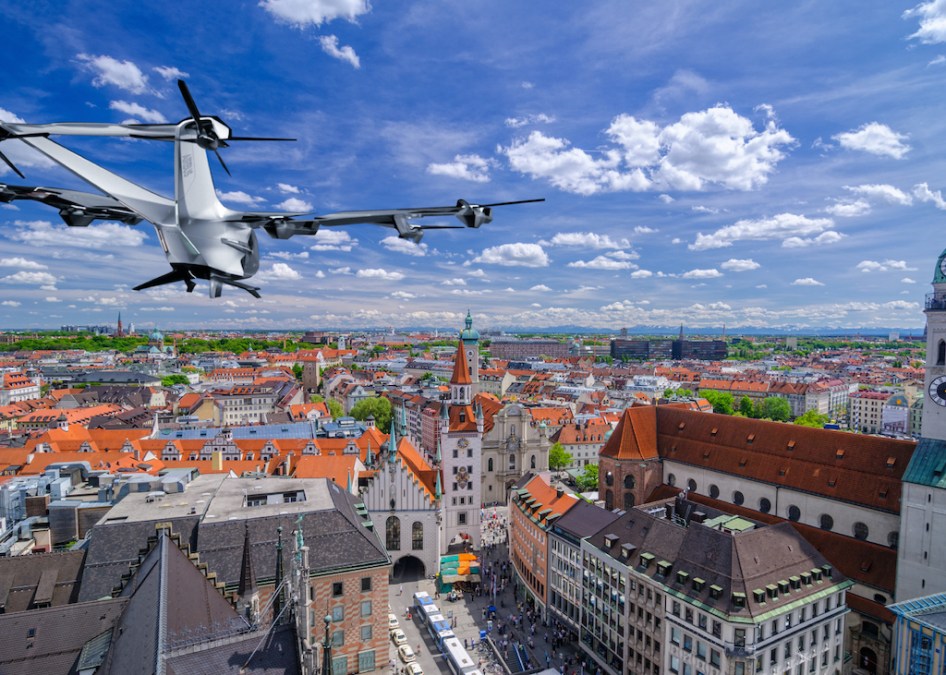Airbus is leading an initiative that will look at launching urban air mobility services using eVTOL aircraft in Germany.
The aerospace company announced it is working with several other partners to launch an Air Mobility Initiative, focused on exploring how eVTOL operations could be implemented in Germany, including what would be required to support unmanned traffic management services and ground infrastructure.
“In many parts of the world, eVTOLs will offer a whole new mobility service in the near future,” said Markus May, head of operations for urban air mobility at Airbus, in a press release. “Airbus and the partners are aware that the introduction of such a system requires the cooperation of many players with different competences. Our goal is to build a transport service that benefits society and this is what we are setting up here in Bavaria.”
Along with Airbus, some of the other partners include the City of Ingolstadt, railway company Deutsche Bahn, air traffic control company Deutsche Flugsicherung, consultant Droniq, Diehl Aerospace, and Munich Airport.
The partners have secured €86 million in private and public investments that will be used over three years. This includes €17 million from the state of Bavaria, and €24 million from the German federal government.
According to Airbus, the partners will start by looking at the technological, infrastructural, legal, and social requirements needed to implement urban air mobility services in Germany, and will later use that knowledge in a demonstration project under real conditions with eVTOL aircraft.
Airbus, which is developing the CityAirbus NextGen eVTOL aircraft, will be leading the eVTOL research activities with Diehl Aerospace, the University of Stuttgart and other partners.
The aerospace company will also work with Droniq, funke, Avionics, SkyFive, BrigkAir, DFS, and Telekom, as well as universities from Munich and Hamburg to explore unmanned traffic management requirements.
Meanwhile, Munich Airport, Deutsche Bahn, Bauhaus Luftfahrt, Airport Nürnberg, and the universities of Ingolstadt and Munich will conduct research on vertiports and city integration.





